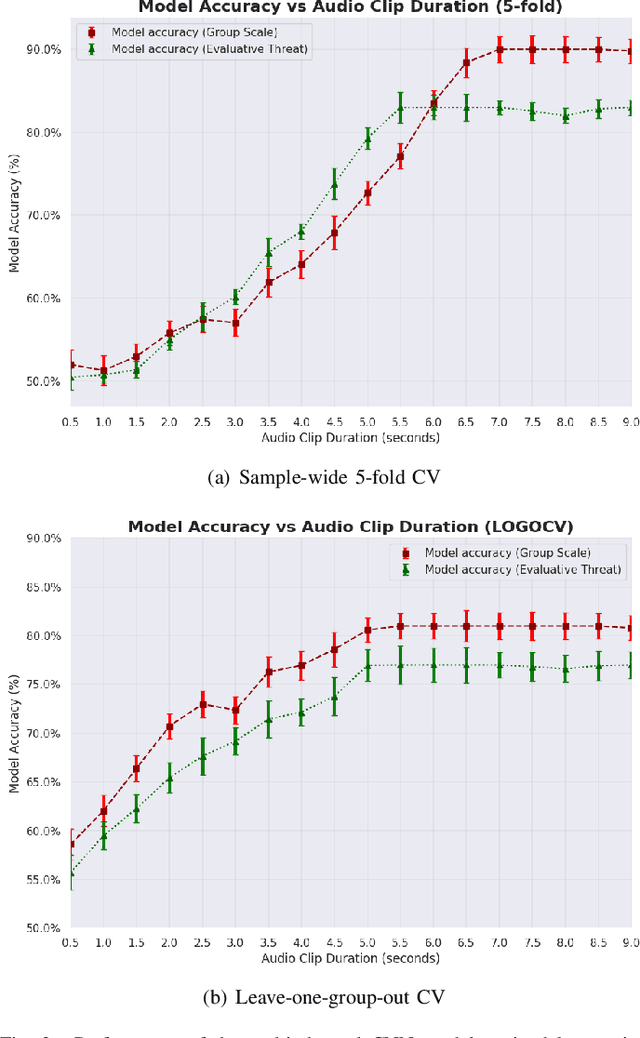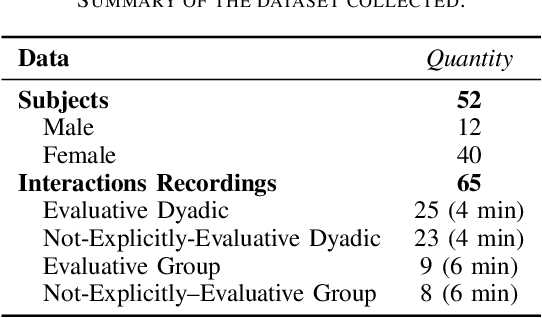Varun Reddy
Mesquite MoCap: Democratizing Real-Time Motion Capture with Affordable, Bodyworn IoT Sensors and WebXR SLAM
Dec 27, 2025Abstract:Motion capture remains costly and complex to deploy, limiting use outside specialized laboratories. We present Mesquite, an open-source, low-cost inertial motion-capture system that combines a body-worn network of 15 IMU sensor nodes with a hip-worn Android smartphone for position tracking. A low-power wireless link streams quaternion orientations to a central USB dongle and a browser-based application for real-time visualization and recording. Built on modern web technologies -- WebGL for rendering, WebXR for SLAM, WebSerial and WebSockets for device and network I/O, and Progressive Web Apps for packaging -- the system runs cross-platform entirely in the browser. In benchmarks against a commercial optical system, Mesquite achieves mean joint-angle error of 2-5 degrees while operating at approximately 5% of the cost. The system sustains 30 frames per second with end-to-end latency under 15ms and a packet delivery rate of at least 99.7% in standard indoor environments. By leveraging IoT principles, edge processing, and a web-native stack, Mesquite lowers the barrier to motion capture for applications in entertainment, biomechanics, healthcare monitoring, human-computer interaction, and virtual reality. We release hardware designs, firmware, and software under an open-source license (GNU GPL).
CaseEdit: Enhancing Localized Commonsense Reasoning via Null-Space Constrained Knowledge Editing in Small Parameter Language Models
May 26, 2025Abstract:Large language models (LLMs) exhibit strong performance on factual recall and general reasoning but struggle to adapt to user-specific, commonsense knowledge, a challenge particularly acute in small-parameter settings where computational efficiency is prioritized. We introduce CaseEdit, a new dataset and generation pipeline for evaluating localized, personalized commonsense knowledge editing in small LLMs to address this. Built upon the ATOMIC20/20 commonsense graph, CaseEdit uses a multi-stage inference process to generate both typical and atypical contextual edits for household objects, paired with targeted evaluation questions across four axes: reliability, generalization, locality, and portability. We evaluate established knowledge editing methods using CaseEdit and demonstrate that AlphaEdit, a technique employing null-space projection to minimize interference with unrelated knowledge, consistently outperforms other methods when applied to an LLaMA 3.2 3B model, even in scalability tests, showing minimal ripple effects. Our results indicate that using CaseEdit with effective editing techniques like AlphaEdit allows small models to internalize high-quality, context-sensitive common-sense knowledge, paving the way for lightweight, personalized assistants.
AudioInsight: Detecting Social Contexts Relevant to Social Anxiety from Speech
Jul 19, 2024



Abstract:During social interactions, understanding the intricacies of the context can be vital, particularly for socially anxious individuals. While previous research has found that the presence of a social interaction can be detected from ambient audio, the nuances within social contexts, which influence how anxiety provoking interactions are, remain largely unexplored. As an alternative to traditional, burdensome methods like self-report, this study presents a novel approach that harnesses ambient audio segments to detect social threat contexts. We focus on two key dimensions: number of interaction partners (dyadic vs. group) and degree of evaluative threat (explicitly evaluative vs. not explicitly evaluative). Building on data from a Zoom-based social interaction study (N=52 college students, of whom the majority N=45 are socially anxious), we employ deep learning methods to achieve strong detection performance. Under sample-wide 5-fold Cross Validation (CV), our model distinguished dyadic from group interactions with 90\% accuracy and detected evaluative threat at 83\%. Using a leave-one-group-out CV, accuracies were 82\% and 77\%, respectively. While our data are based on virtual interactions due to pandemic constraints, our method has the potential to extend to diverse real-world settings. This research underscores the potential of passive sensing and AI to differentiate intricate social contexts, and may ultimately advance the ability of context-aware digital interventions to offer personalized mental health support.
PPINtonus: Early Detection of Parkinson's Disease Using Deep-Learning Tonal Analysis
Jun 03, 2024Abstract:PPINtonus is a system for the early detection of Parkinson's Disease (PD) utilizing deep-learning tonal analysis, providing a cost-effective and accessible alternative to traditional neurological examinations. Partnering with the Parkinson's Voice Project (PVP), PPINtonus employs a semi-supervised conditional generative adversarial network to generate synthetic data points, enhancing the training dataset for a multi-layered deep neural network. Combined with PRAAT phonetics software, this network accurately assesses biomedical voice measurement values from a simple 120-second vocal test performed with a standard microphone in typical household noise conditions. The model's performance was validated using a confusion matrix, achieving an impressive 92.5 \% accuracy with a low false negative rate. PPINtonus demonstrated a precision of 92.7 \%, making it a reliable tool for early PD detection. The non-intrusive and efficient methodology of PPINtonus can significantly benefit developing countries by enabling early diagnosis and improving the quality of life for millions of PD patients through timely intervention and management.
 Add to Chrome
Add to Chrome Add to Firefox
Add to Firefox Add to Edge
Add to Edge